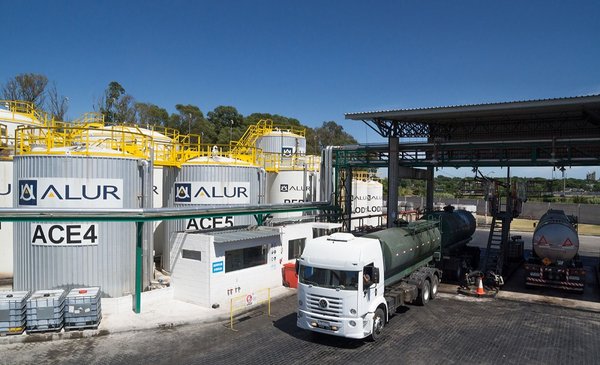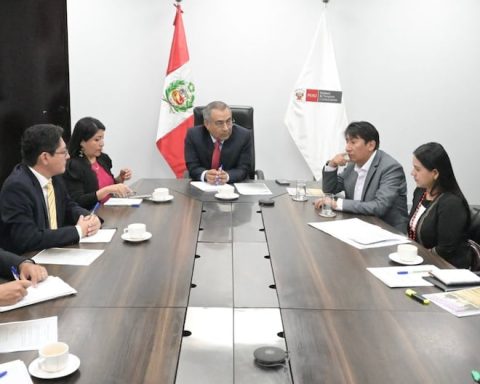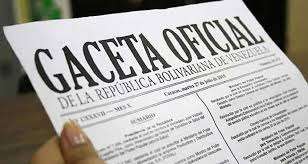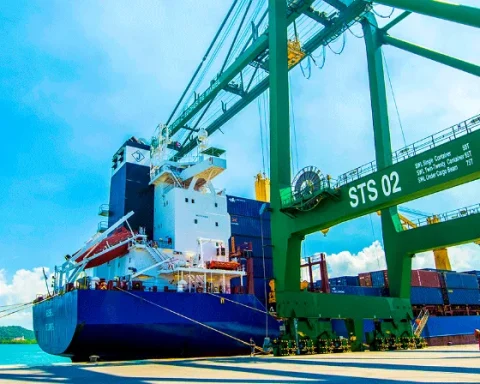After an arduous negotiation process with different international market agents, in the last hours Alcoholes del Uruguay (ALUR) managed to tie an important export business for 4 thousand tons of canola oil biodiesel destined for the European Union, for a value around $5 millionreported to The Observer andThe president of Ancap, Alejandro Stipanicic.
After a bidding process and subsequent commercial negotiations, to obtain a better price from all the bidders, ALUR accepted the best offer, made by Trafigura PTE. The lot has the German environmental certification ISCC and the condition of sale is prepayment. The Uruguayan biodiesel will go to a Scandinavian country after passing through the port of Amsterdam. In these markets, special value is given to the contribution that ALUR products make to the reduction of the global carbon footprint, among other qualities, such as their suitability at low temperatures.
This volume represents around 10% of ALUR’s annual production.. In the call, 120 international companies were summoned, but only 4 made a specific offer, one out of time. What Of the remaining three, none reached the price that ALUR wanted, then a negotiation process was opened that ended with the sale to the international trader TrafiguraStipanicic explained. This renegotiation allowed to obtainr an improvement of about US$ 100 per ton.
The end of the mixture in Uruguay
The latest Rendering of Accounts repealed Ancap’s obligation to mix biodiesel from January 1 last at 5% with diesel. This mixture implied an additional cost of $1.5 for Ancap for each liter of diesel that it sold to the public.. The oil entity chose to apply a transition process while looking for commercial options to place that production and therefore this year it would only agree to mix a maximum of 2.5% biodiesel for each liter of diesel in case ALUR has nowhere to sell that biofuel. According to Stipancic, today biodiesel is not being mixed with diesel in Uruguay. Until last year, Ancap paid just over US$2,000 per m3 for the biodiesel delivered by ALUR.
Ancap’s president highlighted the “importance” of this business “to make itself known” in the world and also to “open future sales for larger volumes within a couple of months.” As it was a first business, ALUR came out with a “reduced volume” for the common international market, but the idea is to raise an offer of between 6,000 or 8,000 tons in a potential new export business in a couple of months. In addition, the Authorities also hope that this will encourage the interest of private operators who want some type of association with ALUR to carry out “longer-term alliances” that allow them to absorb all annual production or even increase it.
This business allows ALUR to be able to maintain its biodiesel production business and not reach the extreme decision of lowering the curtain on that unit, as ANCAP once had in the options menu.. In any case, Stipanicic indicated that with this export business, ALUR only covers the variable costs of biodiesel production and not the entire process, sinceo is enough to cover the fixed costs and the milling contract (take or pay) that the entity’s subsidiary has with Cousa.
The milling contract that ALUR has with the Cousa oil company is valid until 2029, and it must notify three years before (2026) that it would not continue using it. that contract take or pay (you have to pay even if milling is not used) establishes the payment of almost US$ 10 million for the milling of 170 thousand tons (soy base) to Cousa. In a normal regime, the production of ALUR reaches a volume that is between 150,000 and 155,000 tons, but the possibility of grinding 260,000 tons per year is enabled, paying a variable additional in case new destinations arise for the export of biodiesel


















